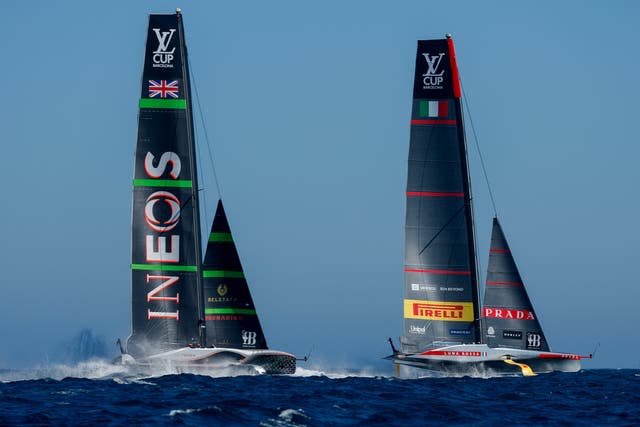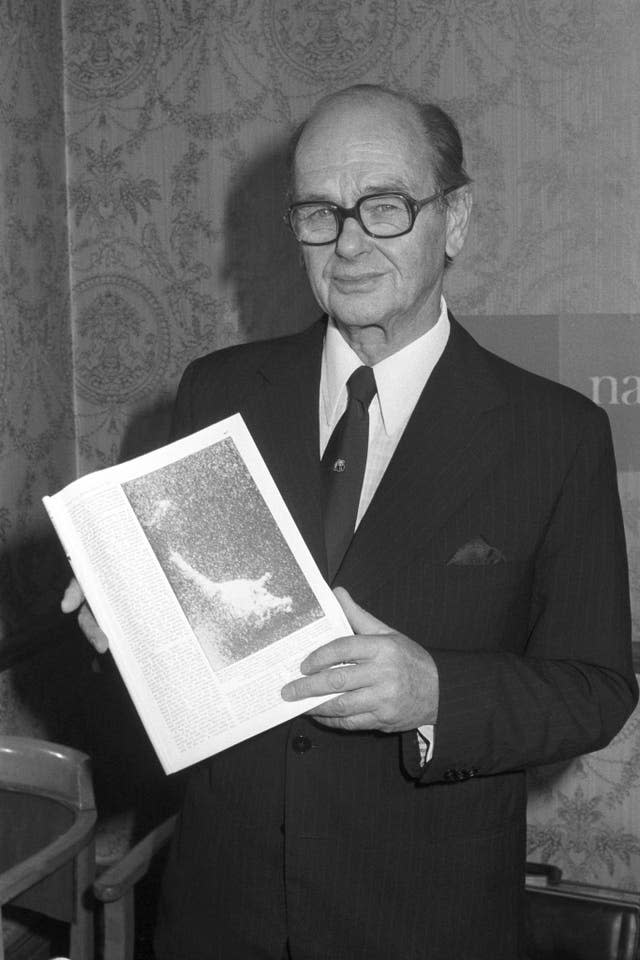Ben Ainslie one win from emulating Loch Ness Monster-believing captain from 1964
For over half a century there may have been more chance of proving the existence of the Loch Ness Monster than witnessing a British team ruling the waves in the America’s Cup.
But on Friday four-time Olympic champion Ben Ainslie has the chance to become the first skipper to hoist the Union flag at sailing’s showpiece event since a swashbuckling Naval hero who refused to lose belief in the mythical creature.
Currently holding a 6-4 lead over Italy in the Louis Vuitton Cup off the Barcelona coast, Ainslie’s Ineos Britannia team will be anointed official challengers to Emirates Team New Zealand if they win one of the two races scheduled on Friday.

Confirmation would herald success at the third attempt for Ainslie’s crew and end a wait stretching back to 1964, when a team led by Peter Scott overcame a second British yacht, Kurrewa, to attain challenger status but was routed 4-0 by America’s dominant New York Yacht Club.
That setback was just one part of an action-packed life led by Scott, the son of Antarctic explorer Captain Robert Falcon Scott, who won a bronze medal in the 1936 Olympic regatta, served in the Royal Navy during the Second World War, and would subsequently serve as president of the International Yacht Racing Union, now World Sailing.
He became an acclaimed conservationist and documentary maker and was a co-founder of the World Wide Fund for Nature (WWF). He had a particular interest in wildfowl, widely credited with saving the Hawaiian Goose from extinction, and named his daughter Dafila after the old scientific name for the pintail duck.

Scott was a co-founder of the Loch Ness Monster Phenomena Investigation Bureau and defied much public ridicule by maintaining of the mythical creature: “It can never be proved that there are no large animals in Loch Ness except by draining it, which will never be done.”
Britain celebrated its first and only America’s Cup win in the inaugural regatta in 1851, when the Royal Yacht Squadron won a fleet race around the Isle of Wight.
Britain duly provided the challenger for 16 of the 18 subsequent races between 1870 and 1964, but were unsuccessful on each occasion, as the New York Yacht Club reeled off a series of 25 straight wins until the Americans were finally deposed by Australia in Fremantle in 1987.
Now under the accomplished helmsmanship of Ainslie, the existence of a British yacht capable of ending over one and a half centuries of America’s Cup hurt may finally be proven.

 Yahoo Sport
Yahoo Sport 


































































